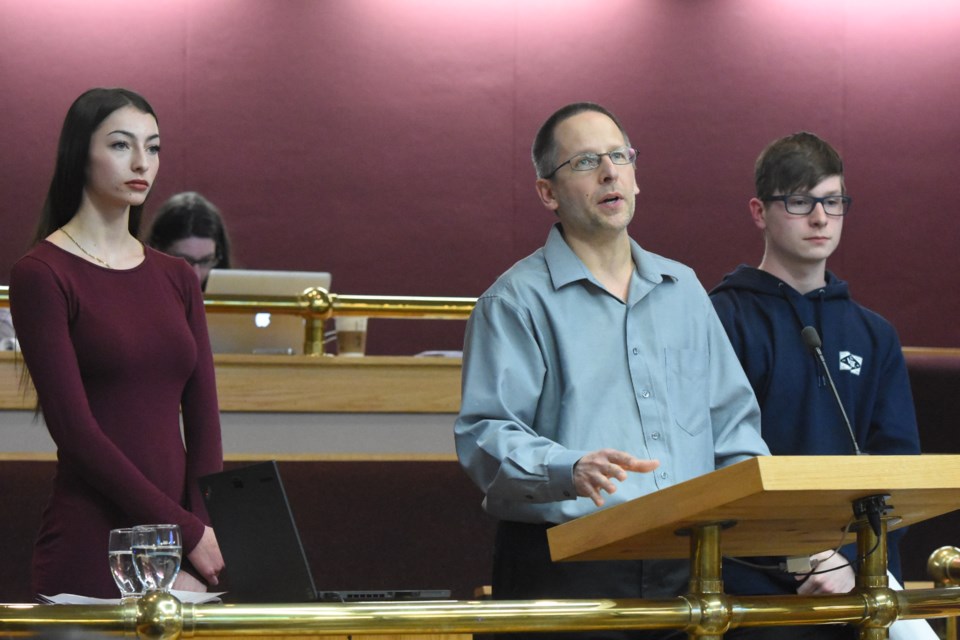A.E. Peacock Collegiate originally planned to collect 5,000 plastic bags throughout the community to recycle, but after receiving more than 35,000, the school adjusted its goal to collect as many as possible.
Science teacher Stephen Lys and environmental science students Rylan Downey and Brittney Anderson spoke to city council during its April 8 executive committee meeting. They discussed their school’s effort to collect plastic grocery bags as part of the national Plastic Grab Bag Challenge.
The trio also put forward a strategy the municipality could adopt to eliminate single-use plastics in Moose Jaw.
Presentation
Residents bring in 1,000 and 3,000 plastic bags per day for disposal, while businesses have also been collecting for them, Lys told council. There are now more than 39 large black garbage bags holding 600 cubic metres of plastic in his classroom.
“We’re replacing the chairs with garbage bags. They’re much more comfortable and we need the space,” Lys joked. “This (project) is a good chance to see if we (can) wipe that waste stream right off face of the city.”
Plastic is made of petroleum and contributes to carbon dioxide, said Anderson. It takes centuries to break down and can’t be easily recycled. About 200,000 bags is equal to 4,000 cubic feet of landfill space per week.
Dirty plastic eventually becomes unrecoverable, she continued. China is no longer accepting foreign recycling, while fees for plastic grocery bags only benefit the company and not the environment.
There are positive aspects to banning plastic bags, said Downey. The landfill’s lifespan would increase since there would be more room. Furthermore, plastic bags can be easily replaced with sustainable alternatives such as cloth. Moose Jaw can also position itself to be a leader provincially and nationally in moving away from single-use plastics.
“We not asking you to switch energy sources, from coal to renewable energy. We’re just asking you to get rid of plastic bags,” Downey said. “It’s not too, too hard. It would take a little while to phase out period. Eventually it would be done.”
It’s important to focus on the future, said Lys. Some transitions —no matter how difficult — need to happen, such as moving to renewable energy from coal, or to electric vehicles from gasoline. He and his students are not attempting to start something new; this is a global trend that is gaining speed.
“Single use plastics are on the way out,” he remarked. “Tolerance against them is mounting.”
Seven cities in North America have already banned single-used plastics. San Francisco was the first, in 2007; Montreal and Victoria followed suit last year. Halifax, N.S., the province of Newfoundland and New York State are also moving in that direction.
The vision Lys and his students have for Moose Jaw includes developing solar and geothermal projects, along with installing solar panels on the roof of every school, eliminating plastic bags and giving free parking for electric cars.
At the end of the presentation, Lys and his students presented council with information packages about how Victoria eliminated the use of plastic bags and how its council informed the public about this process.




